Ten Bulls of Zen – Search for the Bull
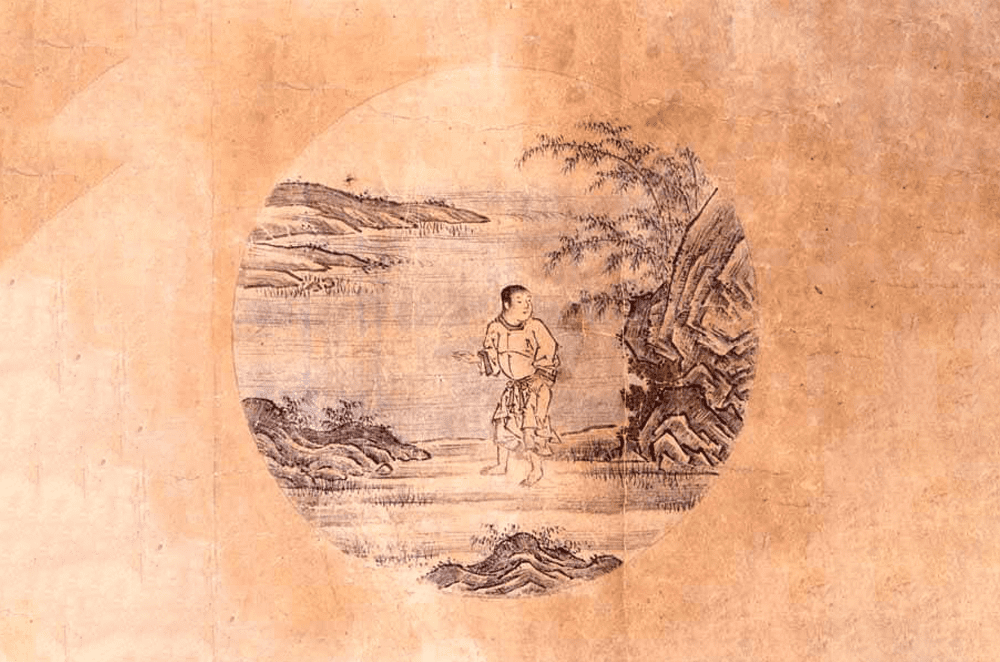
Let us remind you that:
Passionaries of the spirit are people whose priority is not changing their environment, but knowing their own self, changing themselves personally, their worldview and understanding of the world.
The period when the Passionary of the spirit (and, perhaps, the future Bodhisattva) to comprehend the question of the meaning of his life and understand “Who am I?” "sets off on a search and is reflected in the first of the paintings by the Chinese master Koan Shiyuan (Kakuan) - “Search for the Bull.” Today we will focus on it.
Comments on this picture are given in poetic form.
1. SEARCH FOR THE BULL
In the pasture of this world, I endlessly part the tall thickets, hoping to see a bull. Walking along unfamiliar rivers, wandering through intertwined paths lost in high mountains, I have lost strength and hope, I cannot find the bull. I hear only the chirping of cicadas in the night forest.
A comment. The bull is lost, is it worth looking for?
- After all, it is only because of the separation from my true nature that I cannot find it.
- In the confusion of different feelings, I lost track.
- Far from home, looking around at the crossroads, I don’t know which road to take.
- Fear, greed, evil, good lead me astray.
Where to start searching for your true self?
However, in our opinion, it would be more correct to start the first stage not from the stage of “searching for the bull,” when it is implied that a person has already realized that he is looking for his true nature, but from the stage of searching for... who knows what.
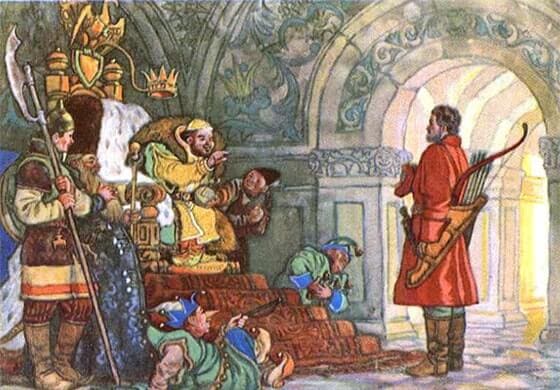
By the way, in Russian fairy tales this period is reflected quite realistically: to go there - I don’t know where, to bring something - I don’t know what.
It should be noted that it was recommended to begin solving this and other similar problems in the morning, because “the morning is wiser than the evening.” But we will dwell on this in more detail later, if possible :).
So, when, in search of “we don’t know what” (a Miracle - something unprecedented, floating in the ocean of the Absolute) and trying to avoid the discomfort of the inharmoniousness of our own life, our Passionary of the spirit learns that we need to look for our true essence, and not unknown what comes bull search stage.
The first difficulty has been overcome, the purpose of the search has been named*, all that remains is to “visit” various possible places of “her/his habitat”, find and catch.
* It is understood that although the formulation of the name of something is not in itself equivalent to gaining an understanding of the essence of the subject, it is verbalization that allows one to begin to meaningfully understand the object of reflection. For more details see Gustav Shpet. Internal form of a word. Sketches and variations on themes by Humboldt. https://ua1lib.org/book/2934259/18743c
Understanding the purpose of the search should not be perceived spatiotemporally as the need to visit different schools of different directions of spiritual traditions and, as a result, begin to consider oneself an “advanced practitioner.” As a consequence of such spiritual tourism, disappointment often arises (in yoga, in Buddhism, and in other traditional teachings). It seems optimal to follow one of the traditions, which has a developed teaching methodology, until a sustainable result is obtained. There are many paths, there is only one peak, but you won’t be able to go along all of them at the same time. Well, naturally, a modern person with a brain developed in information flows should not deny himself theoretical acquaintance with other traditions. This will subsequently help you quickly form a holistic picture of your Being.
Commentary on the 10 Bulls of Zen
Over the years of creation, many authors wrote comments on Kakuan’s paintings. Let's stop at a few and speculate.
Osho
Of course, the importance of the question “Who am I?” impossible to deny. But the explanation is that “The Bull is a symbol of energy, vitality, movement... The Bull represents life itself. The bull represents your inner strength, your hidden potential” is little understood and is more like a formulation in the spirit of cultural and ideological populist slogans “about nothing”. Although, it is likely that for Osho’s listeners, these formulations were very attractive.
Vitality cannot be increased or gained through intensely meditative reflection. Rather, the result will be more like that of Ramakrishna, who, after prolonged meditation, became so weak that he could not rise without assistance.
And the idea of internal energy (prana, qi, kundalini) for a novice seeker exists only as a name (Unprecedented Miracle) but not as a really tangible and conscious object. In addition, for the awakening and development of energy and vitality, other practices are necessary - with the body as the basis, especially in the beginning.
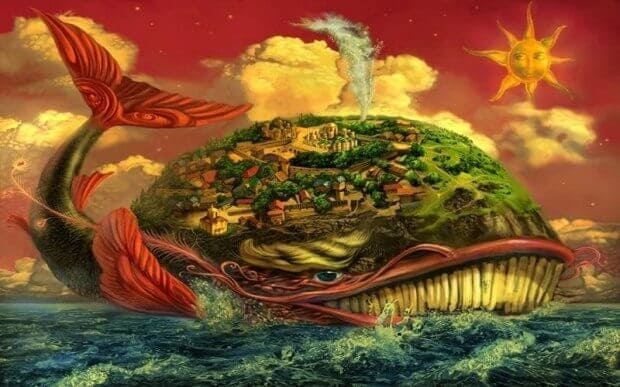
Master Won Q-Kit (in the book Zen Encyclopedia)
It says that a person is looking for his Buddha nature, which he has lost. Without belittling the work of the master, we will only make a small remark.
- If we consider this remark at the understandable formal-logical level of the questioner (the monk from the parable in the previous article), then how can you lose something you never had?
- But if you look from the level of a master mentor, then how can you lose what was and has always been?
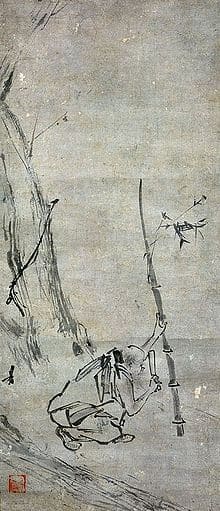
To illustrate the master’s worldview, let us recall the story of the sixth patriarch Chan-Huineng, who, in a dispute with other contenders for the position of abbot, demonstrated his understanding (and enlightenment) with the following verses:
His competitor for the position of mentor, a certain Gatha Shenxiu, demonstrating his usual thinking, wrote:
The body is the tree of enlightenment-bodhi, our body is the tree of Bodhi,
And consciousness is like a bright mirror on a stand.
The heart is like a stand for a clear mirror.
We must work diligently, constantly wiping it,
Hour after hour we wipe it thoroughly,
So that there is no dust and dirt on it!
Without leaving even the smallest speck of dust.
Huinen's response gatha was as follows:
Enlightenment-bodhi initially has no tree,
The original bodhi is not a tree,
And the light mirror does not have a stand.
The bright mirror has no stand.
If Buddha nature is always completely pure,
In the beginning there were no things
Where could there be dust on it?!
So where does dust come from?
His second gatha:
Consciousness itself is the tree of bodhi,
And the body is a light mirror with a stand.
The bright mirror is initially pure,
Where will there be dirt and dust on it?
(Translation by Abaev and Maslov https://board.buddhist.ru/showthread.php?t=8456)
In general, just as there is no “dust” on the mirror, it is impossible to lose it.
(Of course, all this should be understood from a certain perspective, with a change in “levels” of understanding, which confuses the brain, which is within the framework of discursive** thinking)
** Discursive thinking (from the Latin discursus - reasoning) is a form of mental strategy in which a sequential search of various options for solving a problem occurs, most often on the basis of coherent logical reasoning, where each subsequent step is determined by the result of the previous one. There are deductive and inductive inferences. Discursive thinking is often contrasted with intuitive thinking.
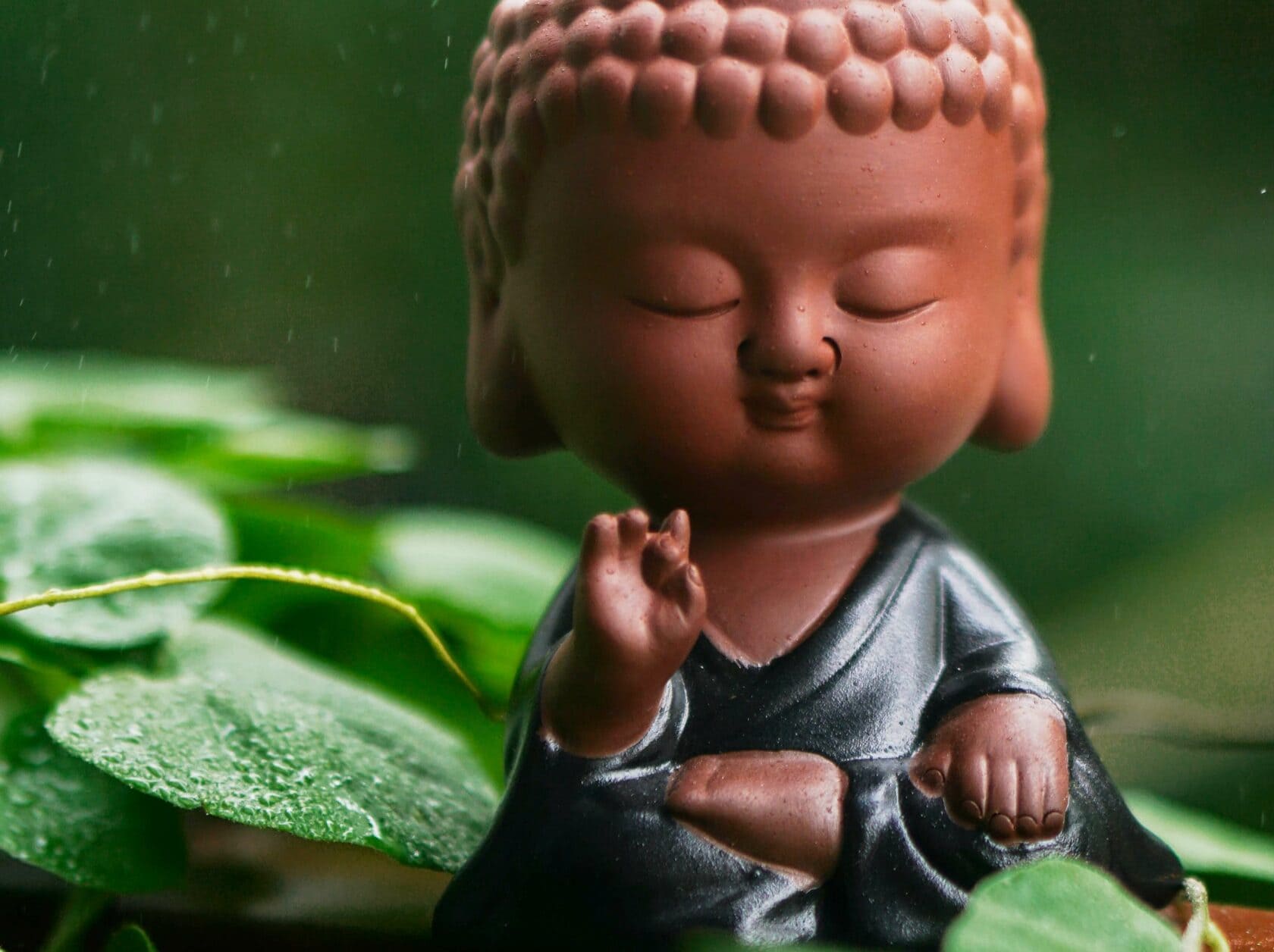
Well, since there is no dust or loss, then “Trees and stones, mountains and rivers - everything has the nature of Buddha,” and everyone around is potentially enlightened. All that remains is to understand this. And for the bodhisattvas to convey this to others. What they do successfully.
Successful for those who are enlightened and successful for them, since everyone around them is already enlightened :)
I invite you to begin or continue your own search for the bull. For example, in Mental Park.